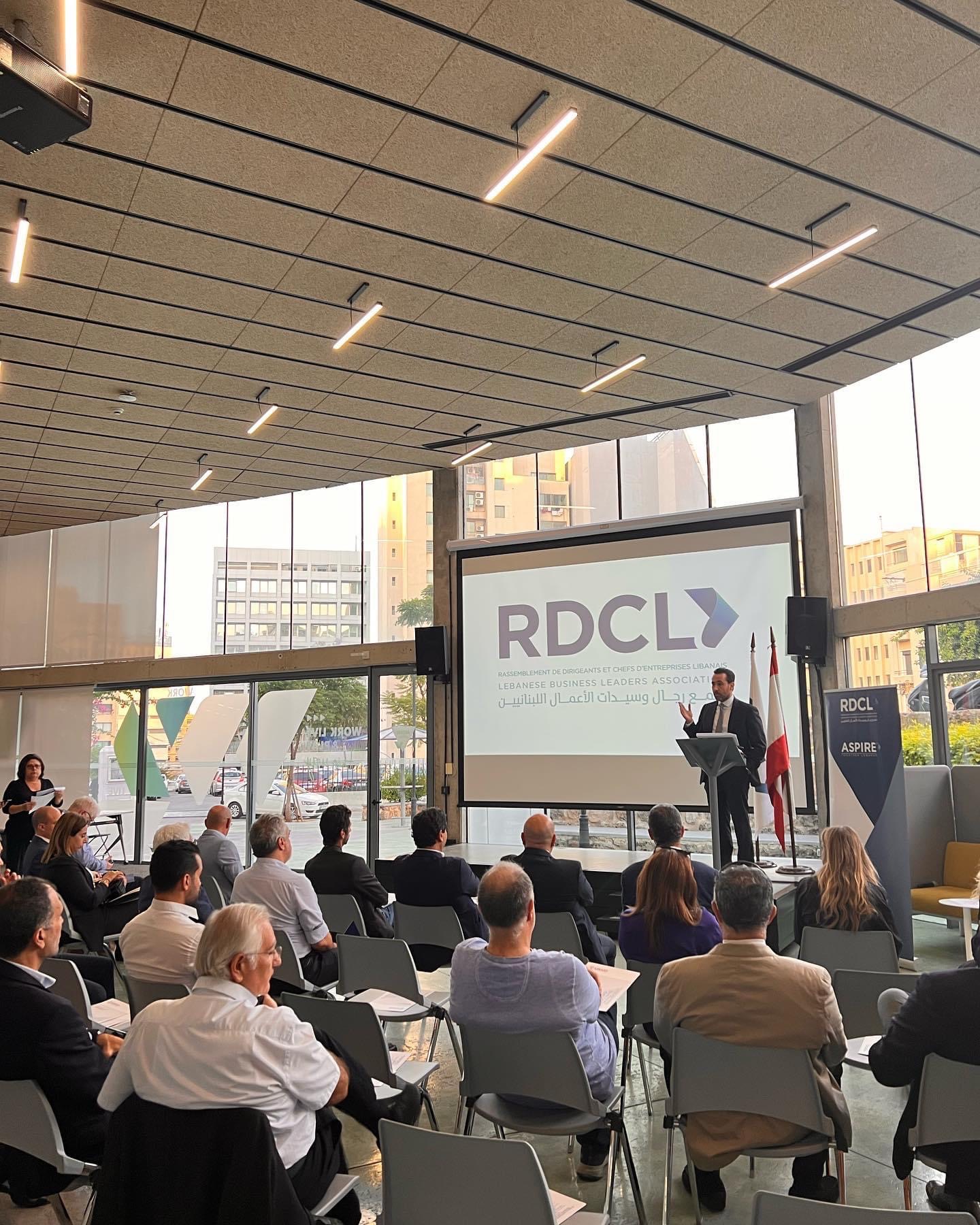Trade facilitations: Maximizing Lebanon’s trade impact and performance
October 21, 2022
Beirut October 21, 2022: The Lebanese Business Leaders Association (RDCL) organized a round table entitled: “Trade Facilitations: Maximizing Lebanon’s Trade Impact and Performance”, on October 19, 2022 at Beirut Digital District BDD, with the support of the Trade and Investment Facilitation (TIF) project, funded by the United States Agency for International Development (USAID).
The President of RDCL, started the event by making the opening remarks, where he explained that the purpose of these events is to unify the private sector for the future economic positioning of Lebanon, and to enhance the communication between all of its sectors. In addition, he highlighted the need ty to adopt at the ports of Lebanon the principals of innovation, good management, and sound governance, which are adopted internationally, in partnership with the private sector.
From his end, Mr. Elie Kachouh, Head of Trade Facilitations GPA (Group for Proposition and Action), presented the major challenges that the trade sector is facing and the priorities should be focused on, as well as the recommendations. Moreover, he insisted on making changes and implementing reforms as fast as possible, and urged the private sector to be more involved in the decision-making alongside the public sector. Nonetheless, Mr. Kachouch suggested adopting new customs laws and improving the followed procedures, knowing that Lebanon has been following complicated procedures for more than 20 years, which should be more simplified, like adopting digitalization which helps fasten the operations and lower the costs, as well as enhance transparency and accountability.
Mr. Mourad Aoun, member of the board, described the reality of the transportation sector in Lebanon, and insisted on the importance of establishing a national strategy for this sector, by all concerned parties, in order to facilitate the work process and improve the sector. Mr. Aoun added that the private sector can accomplish many things like activating the T1 system. In addition, he mentioned that Lebanon has recently adopted E-Commerce, which is frequently used in Lebanon but not in an advanced way, despite being very advanced internationally. He added that the World Trade Organization (WTO) has predicted that the E-Commerce will form 40% of the world’s economy by 2030, and Lebanon is unfortunately very far from achieving what other countries have achieved. Moreover, Lebanon should conclude trade agreements with neighboring countries, and the private sector should take the initiative alongside the public sector and the concerned ministries to reach it. Therefore, all concerned parties, without any exception, should participate in correcting the trading system, and the role of RDCL is bridging the sectors and the responsible parties together.
After the presentations, Dr. Sami Nader, RDCL lead technical expert under the partnership with TIF, moderated the discussion that followed. The round table was marked by the presence of keys actors in the Lebanese private sector, especially the trade sector, and representatives from USAID and TIF Project, as well as the Acting Director General of Lebanon Customs Administration, Mr. Raymond El Khoury. Members of the Association of Car Importers of Lebanon were also present, in addition to the President of the Lebanese Freight Forwarders, representatives of the Lebanese Petroleum Admnisitration and the Association of the Lebanese Industrialists, and many of RDCL members. The audience unanimously agreed on the necessity to adopt digitalization, and prevent illegal trade. Moreover, they also shared the daily complications that they face, such as finding difficulties in accessing the systems due to the ongoing electricity and internet outages, and the extremely long time spent to complete an operation. In conclusion, the most basic needs are not provided, and the private sector should cooperate and work positively on what could be done, step by step, and according to a clear and suitable plan.

